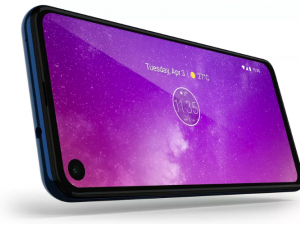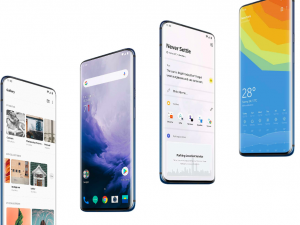Mophie Powerstation PD Review: Pocket-Sized Fast Charging
Damien McFerran 30/01/2019 – 9:32am
Get half your battery back in 30 minutes
£59.95
Most phones have fast charging support these days, which is great for those days when you're short on time and low on battery life. A quick 15 minutes on the wall charger is often enough to get you through a huge chunk of the day, and until manufacturers find a way of making smartphone batteries last for longer, it's a feature we wouldn't want to live without.
Another way of addressing the shortfall in smartphone stamina is the use of portable power banks, which allow you to charge up your device when you're out of the house and away from any available wall sockets. They've been around for ages and have become a vital part of our lives, especially those of us who like to watch movies and play games while we're on the move.
However, most power banks don't have fast charging support, which means you have to keep your handset plugged in for quite some time to feel any real impact. That's starting to change though, as power bank makers scramble to factor swanky new tech into their pocket-sized, juice-giving wonders.
Which leads us to the dinky Powerstation PD from Mophie. It features a 6,700mAh battery but is small and compact enough to fit into your pocket or bag without too much fuss. The PD in the name stands for 'Power Delivery' – Mophie's fancy parlance for fast charging. It delivers up to 18W of charge to swiftly top-up the batteries of 'PD-enabled' handsets – that's essentially any phone which has quick charge support, including the latest iPhones.

Mophie claims that PD will give around 20 percent battery on a 10 minute charge. If you leave it hooked up for 30 minutes, in some cases (naturally dependant on your phone and the size of its battery) you could have as much as half your stamina recharged. If your phone isn't capable of accepting fast charging, then the Powerstation will charge at the usual 5W – it won't damage your phone, but you won't feel the benefit of quick-charging.
The Powerstation PD comes with both USB-C and USB-A ports for charging, allowing you to charge two devices at the same time. Charging the Powerstation PD's battery is a swift process, too; the USB-C port is used for this purpose. To show how much juice is left in the tank, a four-LED display is present on the side which can be activated by pushing the unit's only button.
The outer casing of the unit itself is fashioned entirely from plastic, which does make it feel a little cheap when compared to some of the metal-cased batteries on the market. However, the grippy texture is nice, and we'd be less worried about dropping a plastic battery than we would a metal one, if we're honest. During our test, the Powerstation PD withstood some bumps and knocks without any trouble. It's quite heavy, but not so much that you'll regret bringing it out of the house with you.

Now onto the caveats. If you own an Android phone, then you're golden – the Powerstation PD ships with a USB-C to USB-C cable which means you can fast-charge any modern Android phone right out of the box. However, iPhone owners are out of luck because you'll need to purchase an official USB-C to Lightning cable direct from Apple for around £20 to make use of the Powerstation PD with your phone.
Now, that's not Mophie's fault of course – Apple is the one that's dropped the ball here – but it's still worth noting all the same. If you're an iPhone owner and you fancy this device, then you need to factor in some additional cost – unless, of course, you're happy with only getting standard charging speeds from the Powerstation PD (which would be pretty pointless).
The price could also be seen as a sticking point for some buyers. £60 is a lot of cash for a portable battery in today's competitive market, although Mophie's name on the box will naturally count for something as the company has a decent reputation in this field. Also, the use of PD tech does elevate this small-but-powerful device above much of the competition.
Ultimately, the Powerstation PD is going to be more appealing to Android users than it is iPhone users, at least until Apple drops Lightning connectors on its phones for the industry-standard USB-C (something it has already done with its MacBooks and the new iPad Pro).




